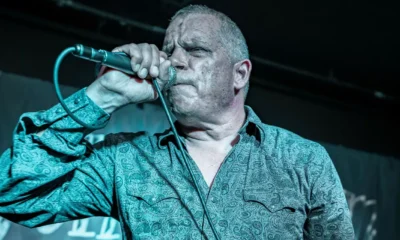cct-tracking
Pope Francis Set for Sunday Release from Hospital After Battling Severe Pneumonia for 5 Weeks

Pope Francis is set to be discharged from Rome’s Gemelli hospital on Sunday after an extensive 38-day stay due to a severe dual pneumonia that posed significant health risks. This period included moments where his condition raised alarms regarding the possibility of a resignation or even funeral.
The 88-year-old pontiff will now head back to the Vatican, where he will need at least two months for rest and rehabilitation. Dr. Sergio Alfieri, who leads the medical team overseeing Francis’ care, cautioned that the pope must avoid large gatherings and physical strain during his recovery.
Despite these challenges, Dr. Luigi Carbone, the pope’s personal physician, expressed optimism. He indicated that with continued progress in physical rehabilitation, Francis could eventually return to all his normal duties.
During a press conference held at Gemelli, Alfieri confirmed the pope’s discharge followed two weeks of stabilization in his condition. “The Holy Father recognized his improvements and was eager to return home,” he stated, noting Francis’s exemplary patience and adherence to medical advice throughout his stay.
Prior to his release, the pontiff will bless the faithful from his hospital suite, marking his first public appearance since his admission on February 14 due to a severe bout of bronchitis that escalated into pneumonia.
The doctors elaborated on the complexities of Francis’s condition, highlighting that recovery from such a severe case of double pneumonia is uncommon. Alfieri recounted a moment when Francis, despite his illness, displayed his characteristic humor by stating, “I’m still alive,” after a difficult medical episode.
Though still facing some challenges in speaking due to lung damage, Alfieri reassured that these issues are typical for pneumonia patients and expected gradual recovery in the pope’s voice over time.
The Argentine pope has a history of lung issues, including a portion of one lung removed in his youth. Following a worsening of his bronchitis, he faced a mix of bacterial, viral, and fungal infections compounded by anemia and kidney failure, which improved after treatment.
Notably, significant respiratory crises occurred in late February, necessitating mechanical ventilation after Francis inhaled vomit. Fortunately, he maintained awareness and cooperativeness throughout his hospital stay.
His condition has stabilized, allowing him to reduce reliance on a ventilation mask at night and high-flow supplemental oxygen during the day. Now, at home in the Vatican, he will have access to necessary medical care, including supplemental oxygen.
While the pneumonia has been effectively treated, the pope will require ongoing medication for a lingering fungal infection in his lungs. Alfieri emphasized that for his recovery, the Vatican presents a safer environment than the hospital, which increases infection risks during recovery.
In terms of upcoming engagements, uncertainty remains. The Vatican spokesperson refrained from confirming any scheduled events, including a potential audience with King Charles III or participation in upcoming Easter services. Nonetheless, Carbone expressed hope that Francis might attend an important ecumenical celebration in Turkey at the end of May.
Colleen Barry contributed from Venice.


















